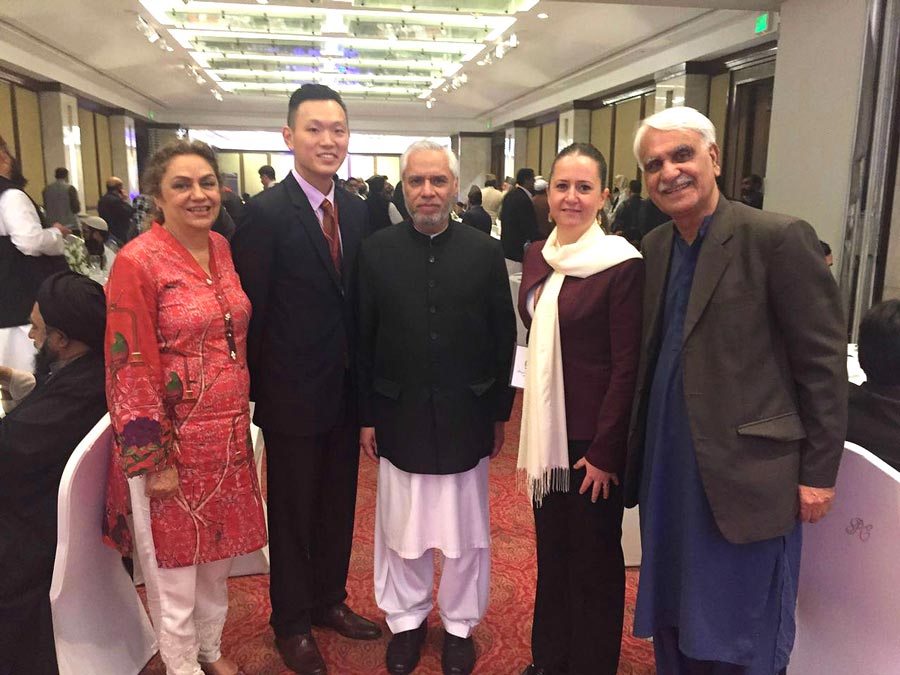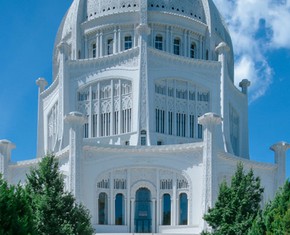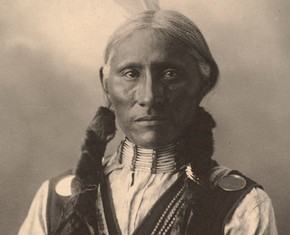The Baha’i Faith emphasizes the need for a deeper understanding of human oneness in fostering peaceful coexistence between different religions.
Speaking at a recent event organized by the government of Pakistan to promote interfaith harmony—the International Seerat Conference in Lahore—Baha’i International Community representative Chong Ming Hwee stated:
In the human body, cooperation ensures the functioning of that system… Similarly, civilization can be seen as the outcome of a set of interactions among closely integrated, yet diverse components—components which have transcended the narrow purpose of tending to their own existence.
And just as the viability of every cell and every organ depends upon the health of the body as a whole, so should the peace and prosperity of every individual, every family, and every people be sought in the well-being of the entire human race.
The International Seerat Conference was held on 11 and 12 December 2016, taking place on the anniversary of the birth of the Prophet Muhammad. Leaders in Pakistan, recognizing the urgent need for interfaith harmony, used the occasion to draw attention to the role of religion in creating unity.

Representatives of the Baha’i International Community with the Secretary of Pakistan’s Ministry of Religious Affairs (center) at the International Seerat Conference held in Lahore.
The conference, which was attended by Pakistani Prime Minister Nawaz Sharif, also included representatives of different religious communities and government officials.
Because it is concerned with the ennobling of character and the harmonizing of relationships, religion has served throughout history as the ultimate authority in giving meaning to life. In every age, it has cultivated the good, reproved the wrong and held up, to the gaze of all those willing to see, a vision of potentialities as yet unrealized. From its counsels the rational soul has derived encouragement in overcoming limits imposed by the world and in fulfilling itself. As the name implies, religion has simultaneously been the chief force binding diverse peoples together in ever-larger and more complex societies through which the individual capacities thus released can find expression. The great advantage of the present age is the perspective that makes it possible for the entire human race to see this civilizing process as a single phenomenon, the ever-recurring encounters of our world with the world of God.
Inspired by this perspective, the Baha’i community has been a vigorous promoter of interfaith activities from the time of their inception. Apart from cherished associations that these activities create, Baha’is see in the struggle of diverse religions to draw closer together a response to the Divine Will for a human race that is entering on its collective maturity. The members of our community will continue to assist in every way we can. We owe it to our partners in this common effort, however, to state clearly our conviction that interfaith discourse, if it is to contribute meaningfully to healing the ills that afflict a desperate humanity, must now address honestly and without further evasion the implications of the over-arching truth that called the movement into being: that God is one and that, beyond all diversity of cultural expression and human interpretation, religion is likewise one. – To the World’s Religious Leaders, April 2002, The Universal House of Justice, p. 4.
“To be a part of this historic conference convened by the government of Pakistan, where contributions of religious minorities were welcomed and embraced, was very heartening,” said Mr. Chong. “Not only did the gathering attest to how the teachings and example of Prophet Muhammed emphasized interfaith harmony, but it also affirmed foundational truths that are common to all religions, namely the oneness of God and of humanity.”
With every day that passes, danger grows that the rising fires of religious prejudice will ignite a worldwide conflagration the consequences of which are unthinkable. Such a danger civil government, unaided, cannot overcome. Nor should we delude ourselves that appeals for mutual tolerance can alone hope to extinguish animosities that claim to possess Divine sanction. The crisis calls on religious leadership for a break with the past as decisive as those that opened the way for society to address equally corrosive prejudices of race, gender and nation. Whatever justification exists for exercising influence in matters of conscience lies in serving the well-being of humankind. At this greatest turning point in the history of civilization, the demands of such service could not be more clear. “The well-being of mankind, its peace and security, are unattainable”, Baha’u’llah urges, “unless and until its unity is firmly established.” – Ibid.
















Comments
Sign in or create an account
Continue with Googleor